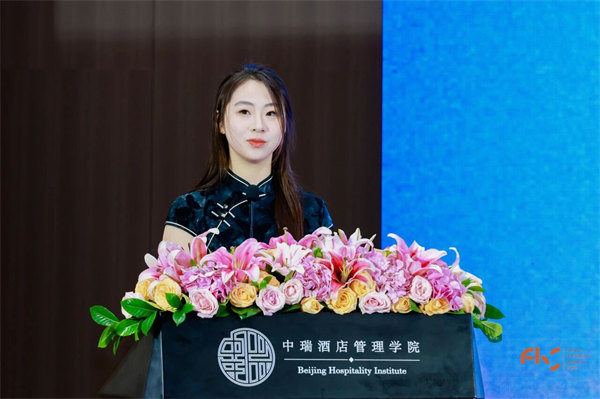

As robots become increasingly common in hotels — cooking, delivering meals and cleaning rooms — they are improving efficiency and cutting labor costs. Yet their rise is also sparking concern among hospitality professionals about whether artificial intelligence (AI) could one day take over their jobs.
How to harness AI while addressing the challenges of this rapidly evolving technology was the focus of the 13th Future Hoteliers Summit (FHS), held in Beijing on October 23. Themed "Empowered by AI, Inspired by Love", the 2025 summit was hosted by Beijing Hospitality Institute (BHI) with guidance from the China Tourism Education Association and the Human Resources Branch of the China Tourist Hotel Association.
A fully student-run event, the summit featured keynote speeches, roundtable discussions with industry executives, experts and educators, as well as the final round of a student competition organized by BHI.
Hong Yu, a third-year BHI student and executive of the 2025 summit, said in her opening speech that FHS has long been devoted to providing a platform for young hospitality talents. Since its founding, the event has been entirely planned and organized by students.
"Over the past six months, 43 core members have worked closely to bring this event to life," Hong said. "FHS has gathered over 3,000 participants from more than 300 universities worldwide, making it a bridge connecting future hoteliers and industry leaders."
Participants at the event agreed that AI is transforming China's hotel industry by enhancing operational efficiency. They noted that AI has evolved beyond simple tools and into intelligent management systems powered by large language models.